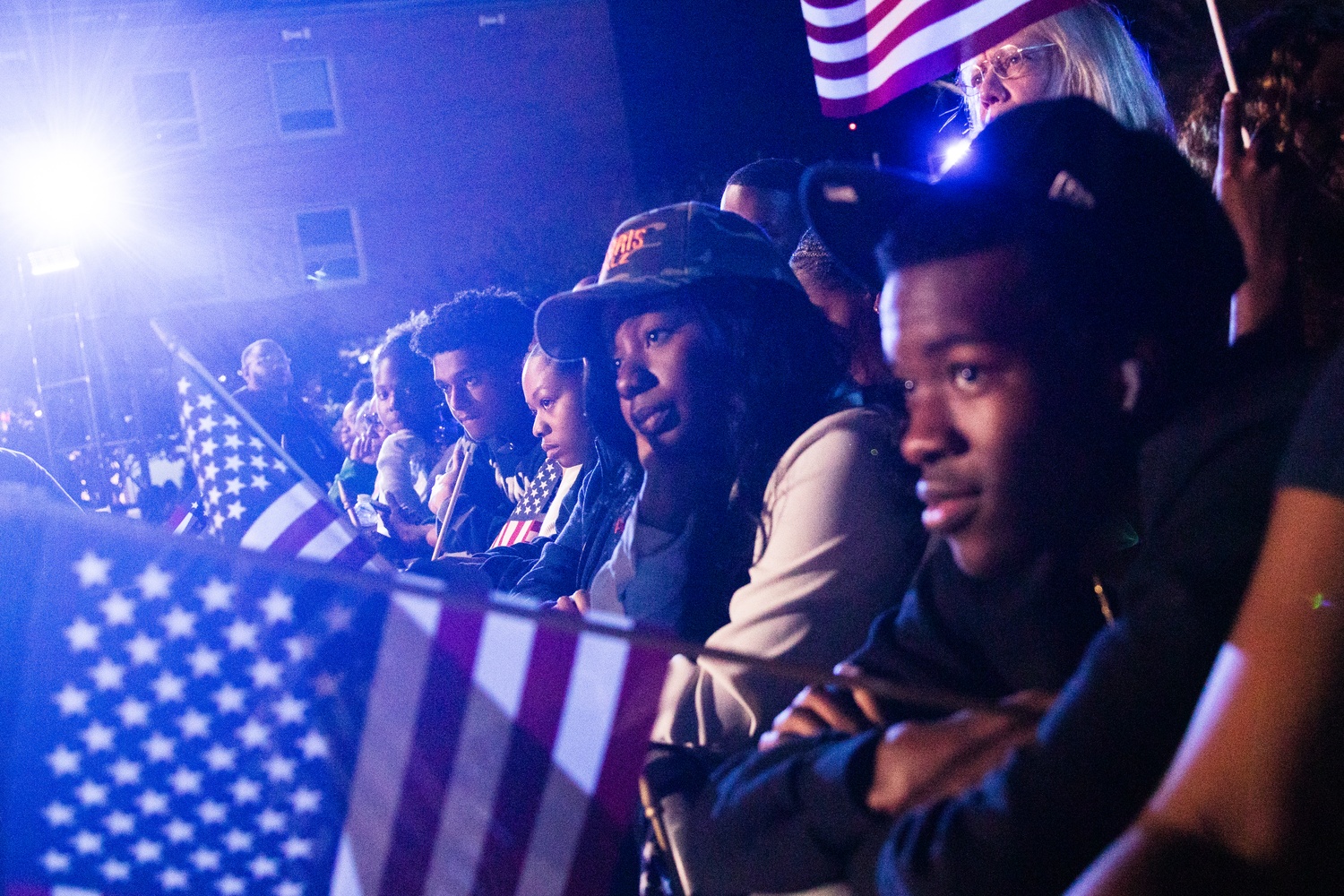
News
Harvard Grad Union Agrees To Bargain Without Ground Rules

News
Harvard Chabad Petitions to Change City Zoning Laws

News
Kestenbaum Files Opposition to Harvard’s Request for Documents

News
Harvard Agrees to a 1-Year $6 Million PILOT Agreement With the City of Cambridge

News
HUA Election Will Feature No Referenda or Survey Questions
Maybe Harvard Really Does Need More Republicans
It was all shock and bewilderment on Harvard’s campus today as news circulated that former President Donald Trump had won back the White House.
While Harvardians are still struggling to understand the win, their very confusion is entirely predictable. Of course we are shocked that Trump has won: we study at a single-party school.
With just over five percent of Harvard’s Class of 2027 identifying as Republican according to the Crimson’s freshman survey, it’s hard to overstate how politically homogeneous our campus is. You’d probably have a better chance of finding a Republican at the Democratic National Convention than in Harvard Yard.
It is possible that a Harvard undergraduate — especially in a progressive concentration — could go through an entire semester not engaging with a single conservative classmate or professor. And with critiques of Harvard’s free speech culture widespread, even when Republicans are represented in the classroom, it’s conceivable that their views might be stifled.
This lack of exposure to truly diverse perspectives is antithetical to Harvard’s mission of educating “the citizens and citizen-leaders for our society.”
The College has long understood this commitment to require diverse representation of those citizens — we even fought all the way to the Supreme Court to defend this ideal.
We supported our practice of affirmative action — explicitly tipping scales for applicants based on their race — by pointing to the benefits of diversity for a college community and education.
We argued that Harvard students need to be exposed to new, varying, interesting life experiences and points of view if they are to transform from citizens into leaders.
We argued that in a big country and an even bigger world this college must adequately prepare its pupils for the true diversity of humanity beyond its gates by creating a vibrant microcosm of that diversity within them.
We argued that students should live, eat, and study side-by-side with people from every income level, race, religion, sexuality, and geographic origin — that in order to have genuine intellectual transformation, Harvardians must be exposed to all viewpoints.
We were prepared to put this principle ever so slightly above meritocracy in the admissions process, too, because it was worthwhile. Unless, of course, that diversity came in the form of Republicans.
So here we are, bewildered all over again. Harvard students have learned from countless marginalized voices and international cultures, but cannot understand how over 72 million of our countrymen — perhaps an outright popular vote majority — cast their ballots for Trump.
We cannot understand because Harvard has abandoned its own mission statement, refusing to acknowledge the immense constituency of conservatives that is colossally underrepresented at this school. We cannot understand because the millions of Americans who turned out for Republicans yesterday are nowhere to be found in our classrooms, dining halls, dorms, or faculty.
With the results now in and four years of uncertainty ahead, Harvard ought to perform a serious evaluation of how well it is representing the world it wants to educate. Harvard’s citizen-leaders cannot be sheltered from half the country any longer.
This election has shown that no matter how much Harvardians might wish the world resembled the People’s Republic of Cambridge, it does not.
If we are serious about true diversity — if we really believe it is our strength and that the value of a Harvard education hinges upon exposure to new ideas and new understanding — it might be time to admit a few more Republicans.
Brooks B. Anderson ’25, a Crimson Editorial editor, is a Government concentrator in Pforzheimer House.
Want to keep up with breaking news? Subscribe to our email newsletter.
Most Read
- Harvard Dismisses Leaders of Center for Middle Eastern Studies
- More Than 80 HLS Professors Denounce Trump Admin Attacks on Law Firms in Letter to Students
- 2 Years After Affirmative Action Ruling, Harvard Admits Class of 2029 Without Releasing Data
- FAS Dean Asks Center Directors To Show Compliance With Viewpoint Diversity Guidance
- Harvard Agrees to a 1-Year $6 Million PILOT Agreement With the City of Cambridge
From Our Advertisers

Over 300+ courses at prestigious colleges and universities in the US and UK are at your disposal.

With innovative financial tools combined with financial education, Collegiate empowers students to take control of their finances and build confidence in their money management skills.

Serve as a proctor for Harvard Summer School (HSS) students, either in the Secondary School Program (SSP), General Program (GP), or Pre-College Program.

With an increasingly competitive Law School admissions process, it's important to understand what makes an applicant stand out.

Welcome to your one-stop gifting destination for men and women—it's like your neighborhood holiday shop, but way cooler.

Admit Expert is a premium MBA admissions consulting company, helping candidates secure admission to top B-schools across the globe with significant scholarships.

